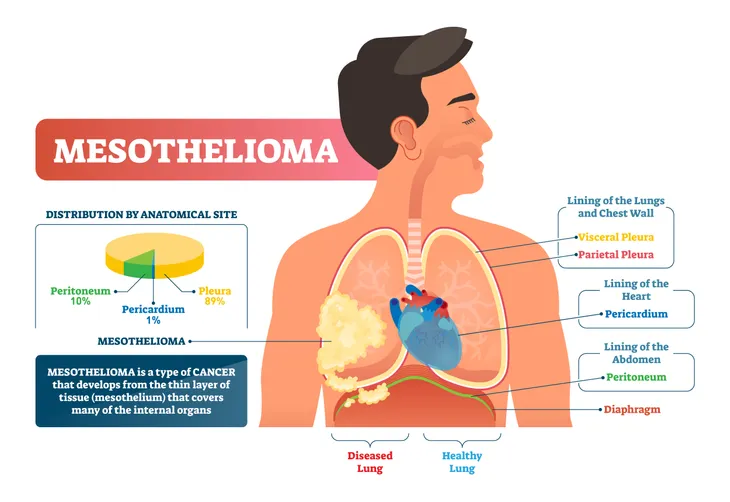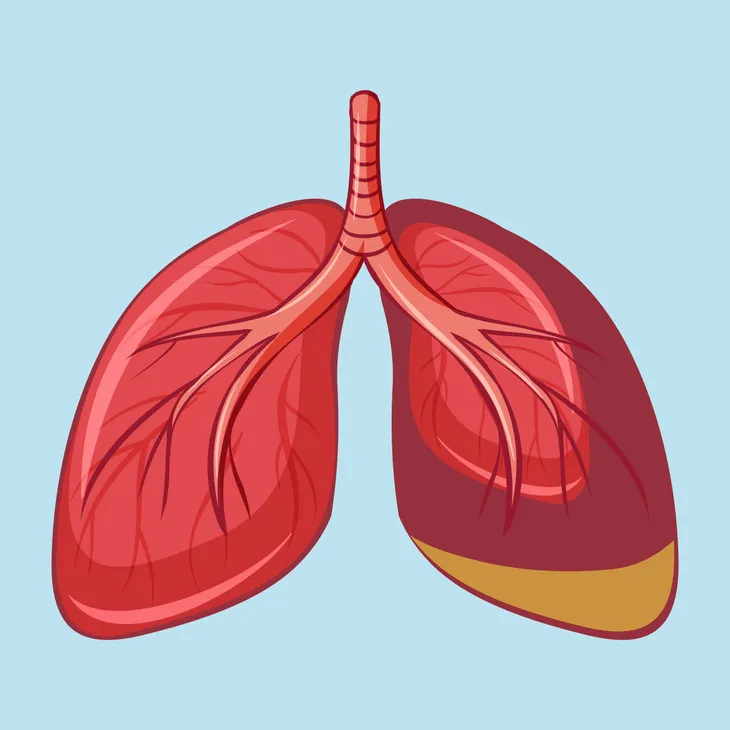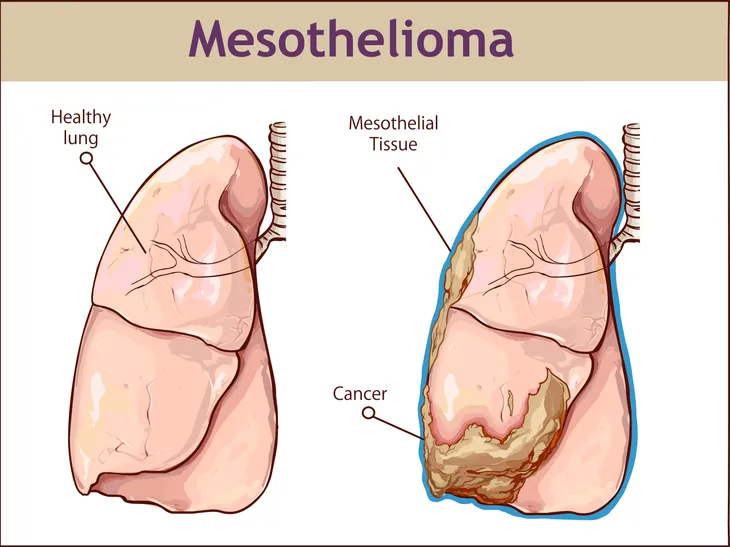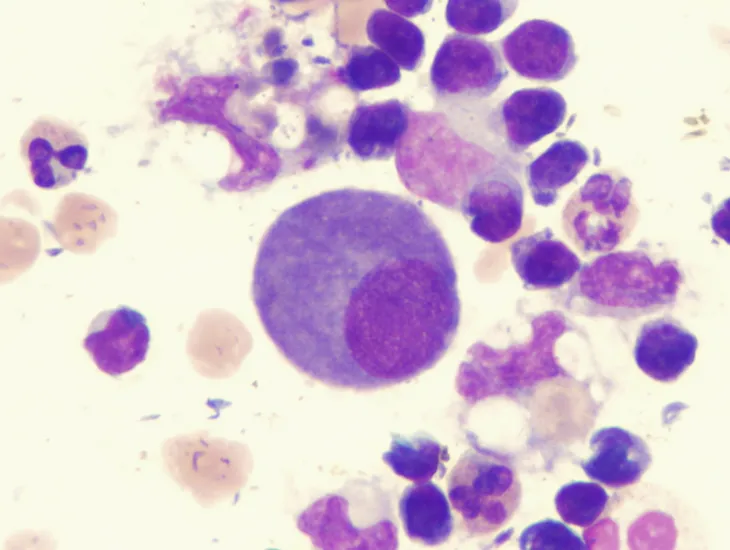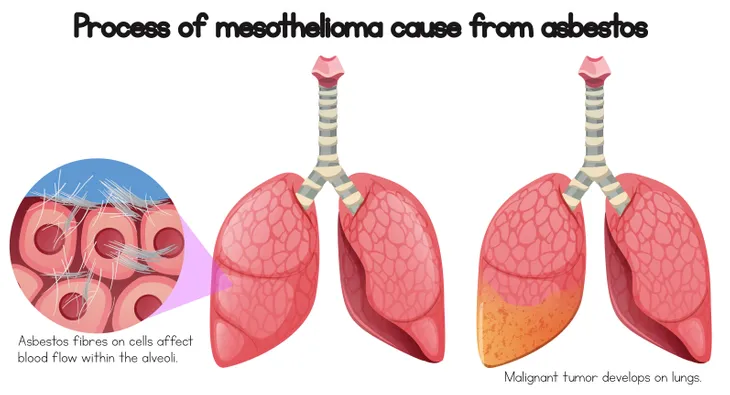You may not have ever heard of mesothelioma, but you’ve most definitely heard of cancer. Well, mesothelioma is a rare type of cancer, often caused by asbestos exposure, that affects the thin membrane protecting the majority of our body’s important organs, such as the lung, heart, and abdomen, says the Mesothelioma Group. Like many other forms of cancer, it can be treated with surgery, chemotherapy, and radiation therapy.
To get better informed on the topic, let’s take a look at the most common symptoms and causes of mesothelioma…
The Location Can Vary
There are a few reasons why mesothelioma is hard to diagnose (we will discuss each of these reasons in this article). First of all, the symptoms take a long time to appear, as they often don’t show up until decades after the initial asbestos exposure. Also, the symptoms are hard to distinguish because they resemble many other common diseases. Lastly, they vary with each stage and location. The most common location for mesothelioma is either the chest, abdomen, or heart, explains Everyday Health.
Pleural Mesothelioma Symptoms
Pleural mesothelioma is the most common type of mesothelioma, as it accounts for about 75-percent of all cases, says the Mesothelioma Group. It originates in the chest and forms in the pleura, which is the protective tissue around the lungs. “Pleural effusions (fluid buildup in the chest around the lungs) make it harder to breathe and causes chronic chest pain,” writes the Mesothelioma Group.
The source goes on to list a number of typical symptoms which include shortness of breath, chest pain, dry cough, weight loss, and in some cases, limited movement in the chest making it difficult to breathe and causing unusual breathing sounds.
Stages 1 and 2
The early stages of pleural mesothelioma are stages 1 and 2. In these stages the cancer is still localized to the protective lining of the lungs, says the Mesothelioma Group. During this stage, there aren’t many symptoms. If there are any, the source states that they will likely be chest pain, fatigue, or shortness of breath.
“Pleural mesothelioma may also cause pleural thickening, a condition that reduces the lung’s ability to expand and contract,” writes the source. This will result in shortness of breath and chest pain.
Stages 3 and 4
Stages 3 and 4 are the more advanced stages of mesothelioma. In these stages, the cancer has spread to other areas of the body, including the lymph nodes. Unlike stages 1 and 2, there will be some clear symptoms at this point, which include “abdominal pain (if the cancer has spread to that area), loss of appetite, difficulty swallowing, anemia,” and a fever as well as/or night sweats, says the Mesothelioma Group.
Peritoneal Mesothelioma Symptoms
Peritoneal mesothelioma originates in the abdomen, affecting the protective lining of the abdominal cavity. It is the second most common type of mesothelioma, as it accounts for about 20 to 25-percent of all cases.
The main symptom is pain and fatigue, but some patients have reported pain and tenderness, as well as hernias. “Ascites (fluid buildup in the abdomen) causes pain and fatigue that is often mistaken for gas or irritable bowel syndrome (IBS),” writes the Mesothelioma Group. It can also cause weight loss, loss of appetite, seizures, and diarrhea or constipation. If the cancer is quite advanced, the source points out that it can cause a bowel obstruction.
Pericardial Mesothelioma Symptoms
This is the rarest form of mesothelioma and it begins in the lining of the heart, also known as the pericardium. The Mesothelioma Group lists the most common symptoms as chest pain, irregular heartbeat, pericardial thickening, and pericardial effusion (fluid buildup).
The source also notes that this form of mesothelioma is sometimes misdiagnosed as inflammation of the heart (myocarditis), or pericardium (pericarditis). “A misdiagnosis usually happens because doctors diagnose less than 1-percent of pericardial mesothelioma cases per year and the symptoms look like other diseases,” writes the source.
Metastatic Mesothelioma
Someone with metastatic mesothelioma has cancer that has spread from wherever it originated (either the heart, lungs, or abdomen) to other parts of the body. A doctor will be able to tell if someone has developed metastatic mesothelioma due to the fact that their symptoms will have reached other areas of the body.
According to the Mesothelioma Group, the symptoms that come along with this are “coughing or spitting up blood (hemoptysis), injury to one or both of the nerves attached to the voice box (laryngeal nerve palsy), nerve malfunction in arms,” or neurological syndromes.
May Not Cause Early Signs
Mesothelioma is difficult to detect because it has such a long latency period. It can take decades for any symptoms to appear. A latency period is the time between initial exposure to when symptoms become noticeable. According to the Mesothelioma Group, the latency period for most symptoms caused by mesothelioma range from 10 to 50 years!
Cause: Asbestos
As we’ve already mentioned, asbestos is the main cause of mesothelioma. So what is asbestos? WebMD explains that it’s a group of minerals with thin microscopic fibers. “Because these fibers are resistant to heat, fire, and chemicals and do not conduct electricity, asbestos has been mined and used widely in the construction, automotive, and other industries,” writes the source.
However, if these tiny minerals are inhaled or swallowed, they can lead to serious health problems. As many as 75-percent of all mesothelioma cases have been linked to asbestos exposure. There is also evidence that even family members who were living with workers who were exposed to these minerals were at risk for developing mesothelioma or other asbestos-related diseases. “This risk may be the result of exposure to asbestos dust brought home on the clothing and hair of asbestos workers. Cases of mesothelioma have also been seen in people living close to asbestos mines,” adds the source.
Cause: Zeolites or Radiation
Zeolites and radiation have also been linked to mesothelioma. Zeolites are minerals that are related to asbestos. The American Cancer Society points out that one of the related zeolite minerals, also known as erionite, is commonly found in the soil in Turkey. It is believed this is why mesothelioma rates are exceedingly high in that area.
Now, let’s move on to radiation. The American Cancer Society cites several published reports that mesothelioma has developed in people who were exposed to high doses of radiation in the chest or abdomen after being injected with thorium dioxide (Thorotrast). This injection material was used by doctors to perform X-rays until the 1950s.
Cause: SV40
According to the American Cancer Society, there have been studies on laboratory animals infected with the simian virus 40 (SV40) that have led researchers to believe the SV40 is a potential risk factor for mesothelioma. “Some injectable polio vaccines given between 1955 and 1963 were contaminated with SV40, exposing as many as 30 million people in the U.S. to the virus,” explains WebMD. However, the source notes that large human studies on this issue have not been able to find an increased risk for mesothelioma or other cancers among people who received these contaminated vaccines.
Cause: Genetics
The final potential cause of mesothelioma is genetics. There are some experts out there who believe that certain people are simply genetically predisposed to this cancer. WebMD explains that, in these cases, the rates of the disease will vary among populations.

